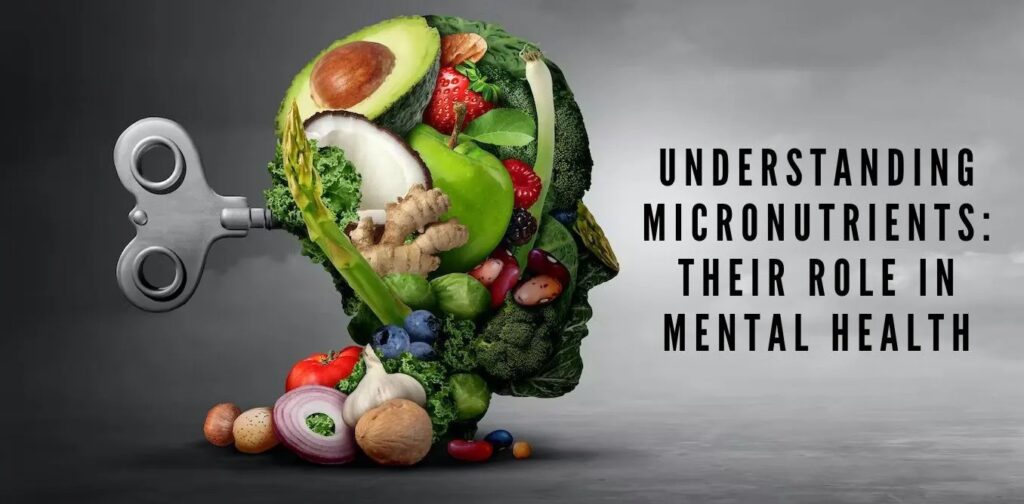Essential Micro nutrients: The Ultimate Guide to Boosting Health and Wellness
Micro nutrients play a crucial role in maintaining our overall health and wellness. These essential vitamins and minerals are required in small amounts, but they are essential for various bodily functions. In this ultimate guide, we will delve into the world of micronutrients, exploring their importance, sources, and how they can boost our health and well-being.
Understanding Micronutrients: What Are They and Why Are They Important?

Micro nutrients, comprising both vitamins and minerals, are pivotal for our bodies despite their necessity in mere trace amounts. These substances are the linchpins of health, facilitating a broad spectrum of physiological functions critical to our survival and quality of life.
Vitamins, organic compounds obtained primarily through our diet, are indispensable for processes such as cellular metabolism, growth development, and the prevention of diseases. Minerals, on the other hand, sustain the structural integrity of our bodies, bolstering bone density, ensuring proper muscle functionality, and enabling efficient nerve transmission.
The absence or insufficiency of these micronutrients can lead to a myriad of health issues, underscoring their significance in diet and overall wellness. Each vitamin and mineral has a distinct role, collaborating to energize, protect, and nourish our bodies at the cellular level, thereby fortifying our immune system, enhancing skin and hair health, and supporting cognitive and emotional well-being.
Understanding the fundamental role of micronutrients illuminates the importance of a diverse and balanced diet tailored to fulfill our body’s complex nutritional demands.
The Essential Vitamins for Optimal Health

In our journey to maintain and enhance our health, the role of 13 essential vitamins cannot be overstated. Each vitamin fulfills a unique function that contributes significantly to our bodily systems. For instance, Vitamin A is paramount for vision and immune health, while Vitamin E plays a crucial role in protecting cells from oxidative stress.
The B-complex vitamins, including B6, B12, and folate, are vital for energy metabolism and the production of red blood cells. Vitamin K, essential for blood clotting and bone metabolism, along with Vitamin D, crucial for calcium absorption and immune function, round out this group of indispensable nutrients. Incorporating a diverse array of foods such as citrus fruits for Vitamin C, fatty fish for Vitamin D, leafy greens for Vitamin K, and whole grains for B vitamins can significantly impact your health by ensuring that your diet is rich in these vital nutrients.
Additionally, exposure to sunlight can naturally boost your Vitamin D levels, further supporting bone health and immune function. By understanding the distinct benefits of each essential vitamin, individuals can make informed dietary choices that enhance their nutritional intake and overall health.
Key Minerals and Their Impact on Your Wellness
Minerals are indispensable for our health, playing critical roles in bodily functions ranging from muscle contraction to hormone production. Magnesium, for example, is a co-factor in over 300 enzyme systems that regulate diverse biochemical reactions in the body, including protein synthesis and blood glucose control. Iodine is vital for thyroid function, influencing metabolism, while selenium supports immune function and combats oxidative damage.
Consuming foods rich in key minerals such as leafy vegetables for magnesium, seafood for iodine, and nuts and seeds for selenium can greatly enhance your wellness. Iron, necessary for transporting oxygen in the blood, is abundantly found in lentils and red meat, whereas potassium, which helps maintain normal blood pressure, is plentiful in bananas and potatoes. By integrating a variety of mineral-rich foods into your daily diet, you provide your body with the tools it needs to perform at its best, supporting everything from your mental clarity to your physical endurance.
How to Identify Micronutrient Deficiencies

Identifying micronutrient deficiencies requires vigilance towards one’s health, as these deficiencies often manifest through subtle yet impactful signs. Key indicators include prolonged fatigue, inexplicable weakness, brittle hair and nails, and changes in skin health, such as rashes or increased dryness.
Mental fog, difficulty in concentrating, and a general sense of feeling unwell may also signal a lack of essential vitamins and minerals. For a definitive diagnosis, blood tests offer concrete evidence of which micronutrients are lacking. Engaging with a healthcare provider is crucial for interpreting these test results accurately. They can guide the next steps in addressing the deficiency, possibly involving dietary adjustments or the introduction of supplements.
Additionally, a registered dietitian can provide tailored advice on enriching your diet to prevent future deficiencies, ensuring your nutritional needs are comprehensively met. It’s imperative to monitor your health and seek professional advice upon noticing signs that may indicate a micronutrient imbalance.
Strategies to Boost Your Micronutrient Intake

Elevating your intake of micronutrients requires thoughtful consideration of your daily dietary habits. Diversity on your plate is key—aim to consume a rainbow of fruits and vegetables, as different colors often indicate different nutrients.
This variety ensures you’re covering a wide spectrum of vitamins and minerals essential for health. Incorporating whole grains into your meals provides B vitamins and trace minerals, while lean proteins are excellent sources of iron and zinc. Don’t overlook the importance of healthy fats, such as those found in avocados, nuts, and seeds, which facilitate the absorption of fat-soluble vitamins like A, D, E, and K. Consider plant-based sources of iron, like lentils and spinach, to enhance iron intake, especially if you follow a vegetarian or vegan diet.
Regularly consuming small portions of nuts and seeds can also boost levels of magnesium, selenium, and zinc. Remember, it’s not just about what you eat but also how you prepare it; gentle cooking methods like steaming preserve nutrient content. By adopting these strategies, you can naturally increase your micronutrient consumption, supporting optimal health without the need for excessive supplementation.
The Role of Supplementation in Achieving Optimal Micronutrient Levels
Navigating the landscape of supplementation can be a valuable strategy for filling nutritional voids, especially when dietary restrictions, health conditions, or increased needs make it challenging to obtain all essential micronutrients from food alone.
When considering supplements, it’s crucial to select high-quality products and adhere to recommended dosages, as overconsumption can lead to adverse effects. Key micronutrients such as iron, vitamin D, and omega-3 fatty acids are commonly supplemented to address specific deficiencies. For example, individuals with limited sun exposure might benefit from vitamin D supplements to maintain bone health and immune function. Vegetarians and vegans, who might not get enough B12 from their diet, can also find supplementation beneficial.
While the aim should always be to achieve nutrient sufficiency through a varied diet, strategic supplementation, under the guidance of a healthcare professional, can help bridge the gap, ensuring that your body receives the full spectrum of micronutrients it requires to thrive.
Micronutrients and Their Role in Mental Health

The profound influence of micronutrients on mental health cannot be understated, acting as both a shield and a tonic for the mind. Essential nutrients, including omega-3 fatty acids, are pivotal in maintaining and enhancing cognitive function and mood regulation. These healthy fats, found in fish and flaxseeds, contribute to the structural integrity of brain cells, facilitating better communication between them.
The B vitamins, particularly B12, B6, and folate, play instrumental roles in the production and regulation of neurotransmitters, chemicals in the brain responsible for transmitting signals that influence our mood, energy levels, and overall sense of well-being. A deficiency in these vitamins can manifest as increased irritability, mood swings, and depressive symptoms.
Magnesium, another critical mineral, acts as a natural tranquilizer, helping to calm the nervous system and mitigate stress responses. This relaxation effect can improve quality of sleep, a crucial component of mental health maintenance. Consuming foods rich in magnesium, such as leafy greens, nuts, and whole grains, can therefore provide a natural way to enhance mental resilience and emotional stability.
Incorporating a diet that provides these key micronutrients can be a fundamental strategy in supporting mental health. This approach underscores the interconnectedness of our diet and psychological well-being, offering a holistic path towards improved mental fitness.
Putting It All Together: A Micronutrient-Rich Diet Plan
Crafting a micronutrient-rich diet begins with variety and balance. Focus on integrating a wide array of colorful fruits and vegetables, ensuring you ingest a spectrum of vitamins and minerals. Incorporate whole grains to gain the benefits of B vitamins and essential minerals, and choose lean proteins for their vital iron and zinc content.
Healthy fats from avocados, nuts, and seeds not only contribute beneficial fats but also aid in the absorption of fat-soluble vitamins. For those on plant-based diets, prioritize sources like lentils, spinach, and fortified foods to cover potential gaps, especially in B12 and iron. Introduce a mix of nuts and seeds into your routine to secure magnesium, selenium, and zinc.
Consulting with a registered dietitian can provide customized advice to align with your health objectives, dietary preferences, and any existing conditions. By conscientiously selecting foods that cover the full range of micronutrients, you empower your body to function optimally, supporting both physical and mental well-being.



